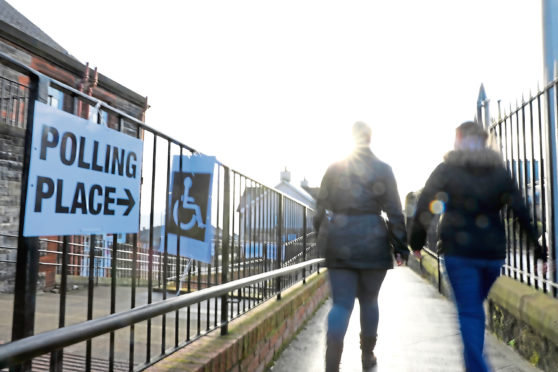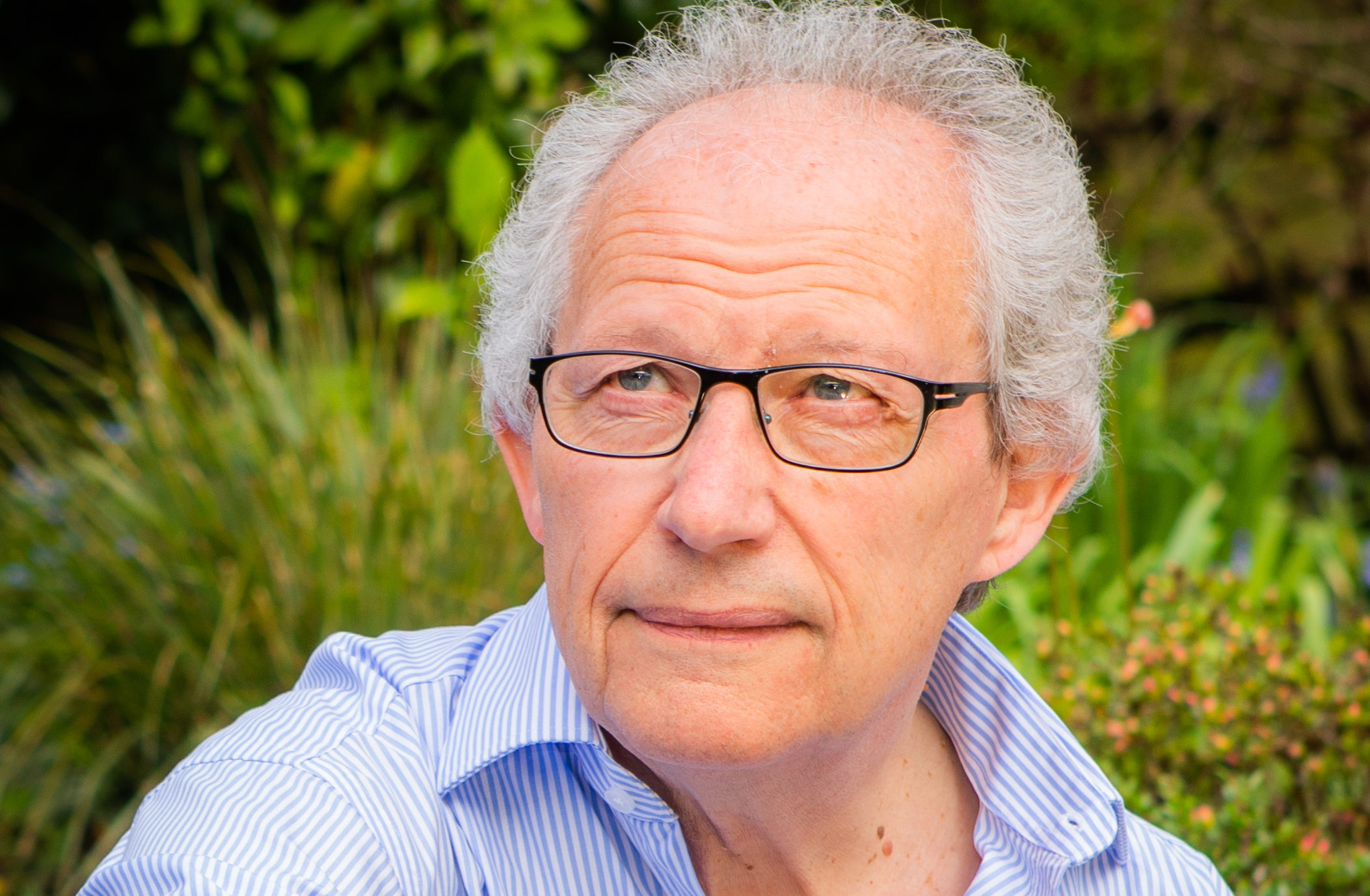
The Scottish elections in May must be postponed because voting risks spreading the coronavirus and local authorities must prioritise easing the impact of the pandemic, according to former first minister Henry McLeish.
He fears organising the poll will take council resources from more important work while the swift spread of the new strain of the virus will risk the health of voters and campaigners.
His concerns were echoed by other senior politicians, public health specialists and doctors yesterday as speculation mounts that the Holyrood poll may have to be pushed back. However, other experts believe the vote will be able to go ahead despite the pandemic, possibly with voting spread over a number of days and a concerted campaign to encourage postal voting.
First Minister Nicola Sturgeon said on Monday she believed the poll, which had already been postponed a year to avoid a projected clash with a UK general election, should be able to go ahead as planned.
However, Mr McLeish, first minister from 2000 to 2001, warned holding an election during what seems certain to involve some level of lockdown will not only put voters at risk but also mean disruption to campaigning.
He said: “First, people are focused on the pandemic. They’re concerned, worried, losing loved ones. The country, in my view, is certainly not ready for an election.
“Secondly, elections need organisation. This will involve the Scottish Parliament and local authorities. The local authorities are in a war just now dealing with the implications of Covid-19. One questions whether manpower and resources should be focused on an election.
“The third issue is the question of campaigning. In Scotland we still continue the tradition of doorstep campaigning. That’s impossible at the present time.
“In elections the public and the media have the chance to question the politicians. That requires contact and is also impossible right now. The government and the political parties need to get together now to look ahead, not leave it to the last minute.” Former presiding officer Sir David Steel echoed his concerns, saying the poll should be delayed for six months.
The former MP, whose daughter Catriona Bhatia is standing as a Lib Dem candidate, said: “The election should be postponed as normal electioneering is impossible during lockdown which is now expected to last through to March.”
Other experts believe the election could go ahead in May, but with polling taking place over several days to reduce the number of voters in polling stations at any one time and a drive to encourage postal voting.
More than 2.2 million Scots voted in the 2016 election, with 2,689 polling places including schools, libraries and community halls, in use. About 560,000 people sent postal votes. The Scottish General Election (Coronavirus) Bill, passed by MSPs at the end of last year, includes measures aimed at allowing a ballot to go ahead during the pandemic, including a huge increase in postal voting and allowing voting over several days.
In England, local council elections due to be held last May were postponed for 12 months due to the pandemic. The Cabinet Office last week said they should go ahead this May, but said the situation would be kept under review.
Professor James Chalmers of Dundee University, one of Scotland’s leading experts in respiratory diseases, said that, unless transmission rates have fallen substantially, the vote should be not held until the summer. He said: “The election should only go ahead in May if the infection rate is down considerably. If not, then we should consider putting it off until perhaps July when there will be greater numbers of people vaccinated.
“You could not possibly hold an election when the infection rate is high. We can’t have people catch Covid because they went out to vote.”
Professor Chalmers said if it were judged safe to go ahead in May, the number of polling places would need to be dramatically increased, in order to reduce the number of voters in them at any one time.
He said: “Polling stations should be places where people do not have the opportunity to gather in groups. There should also be additional polling stations. People should also wait outdoors, two metres apart, to vote, not inside.”
Public health professor Linda Bauld, of Edinburgh University, said the vote could go ahead in May if a package of measures was introduced, such as holding the vote over several days, making polling places safer and encouraging people to use a postal vote.
She said: “It would need to be very tightly managed. You’d need physical distancing – you shouldn’t have anybody queuing indoors – you’d need marshals. You’d need it to be a bit like the Covid testing centres.
“You then only let one or two people in to the voting centre at a time. It would slow the whole process down so you might have to do it over several days. That’s why you’d really have to up the postal voting.”
Behavioural scientist Stephen Reicher, of St Andrews University, who advises the UK and Scottish governments, also suggested postal voting and staggering the voting process might make a May vote possible: “It’s hard to predict because we don’t know what the state of the pandemic will be. The important thing is the principle that any event where you mix people in close proximity – and voting takes place indoors – is dangerous, therefore if we go ahead with the election we’ve got to do it in a way that minimises that indoor mixing.
“I can see the argument for postponing the election but the democratic process is very important. There are a number of ways to limit in person contact. We can do it by having more postal votes.
“We can stagger it over multiple days with people with different surnames coming on different days. There are also implications for campaigning. Rallies and in-person events won’t be possible.”
Political scientist Dr Alistair Clark of Newcastle University said: “Scotland has, since the middle of last year, been contingency planning for this year’s elections.
“The Scottish Parliament passed the Scottish General Election (Coronavirus) Bill at the end of last year allowing for contingencies for the election if they need them, such as to go postal, to change deadlines because they expect there will be more postal voting, to make sure administrators can process all the applications they are getting. So, there is actually Scottish legislation on the statute book now in advance of May’s election.
“The assumption is there will be a big increase in postal voting. It’s expected to more than double. In a normal Scottish election it’s about 18% but electoral administrators expect it to be more than 40%. I would expect to see a big public information campaign to get people to register for a postal vote well in advance.
“I think the election should go ahead. We already have a parliament that is five years. It has already been extended. I think it’s important people can continue to hold their representatives to account. Covid-19 is not going away.”
The Electoral Commission said: “Elections have managed to proceed where practical in democracies around the world during the pandemic and our preparations allow for a range of restriction levels in May.
“We will continue to monitor the public health situation and to work closely with public health bodies to ensure planning for the polls is informed by the latest advice.”

Enjoy the convenience of having The Sunday Post delivered as a digital ePaper straight to your smartphone, tablet or computer.
Subscribe for only £5.49 a month and enjoy all the benefits of the printed paper as a digital replica.
Subscribe © Steve MacDougall / DCT Media
© Steve MacDougall / DCT Media